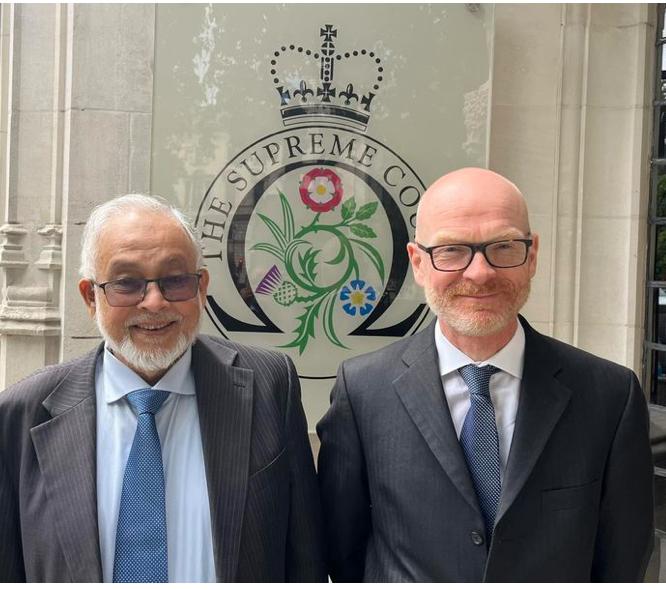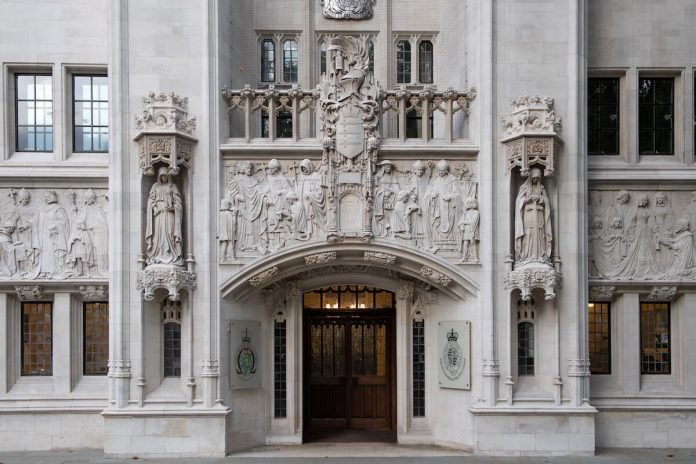21 Jun. 24: In a landmark decision, the Supreme Court has unanimously ruled in favor of prominent Muslim community leader Chowdhury Mueen-Uddin, allowing his libel claim against the Home Secretary to proceed to trial. This judgment overturns previous rulings by the High Court and the Court of Appeal that had dismissed Mueen-Uddin’s claim as an abuse of process.
Background of the Case
Mueen-Uddin’s legal battle stems from a 2019 Home Office report that accused him of complicity in war crimes and crimes against humanity during the Bangladesh war of independence in 1971. Mueen-Uddin, who has lived in the UK since 1973 and became a British citizen in 1984, has consistently denied these allegations, which he claims are politically motivated and false.

In 2013, Mueen-Uddin was convicted in absentia by Bangladesh’s International Crimes Tribunal (ICT) and sentenced to death. The ICT, established by Bangladesh’s domestic legal system, faced widespread criticism for its lack of procedural protections and reliance on dubious evidence, including historical newspaper reports. The tribunal’s processes were condemned by various human rights organizations, the United Nations, the European Union, and the UK Parliament.
Fearing execution, Mueen-Uddin did not attend the trial or any subsequent appeal, a decision the Supreme Court deemed justified given the circumstances. The UK has consistently refused to extradite him, and Interpol withdrew a Red Notice for his arrest due to the concerns over the ICT’s fairness.
The UK Home Office Report
In 2019, the Home Office published a report by the Commission for Countering Extremism titled “Challenging Hateful Extremism.” The report implied that Mueen-Uddin was responsible for war crimes during the 1971 war, a claim that reached a wide audience through online downloads and social media.
Mueen-Uddin’s initial complaint to the Home Office was met with resistance, leading him to file a libel lawsuit. The Home Secretary sought to have the case dismissed, arguing that it was an improper attempt to overturn the ICT’s conviction and that defending the allegations would be unfair given the passage of time.
UK Supreme Court’s Ruling
The Supreme Court of the United Kingdom robustly rejected these arguments. Lord Reed, President of the Supreme Court, emphasized the fundamental right of individuals to access the courts to defend their civil rights, a principle enshrined in common law and various statutes, including the Human Rights Act 1998.
The Court found that the Home Secretary’s claim of abuse of process was unfounded, especially given the unfair nature of the ICT proceedings. It dismissed the notion that proving the truth of the allegations was unfair, noting that the burden of proof lies with the defendant in defamation cases. Lord Reed stressed that if the Home Office could not substantiate its claims, it should not have made them.
Moving Forward
Mueen-Uddin expressed gratitude for the judgment, highlighting his faith in the British justice system and his relief at being able to clear his name. His legal team from Carter-Ruck, led by Adam Tudor, will now prepare for the trial.
This ruling sets a significant precedent in libel law, affirming the right to defend one’s reputation even against severe allegations made by the government.
The case will now proceed to trial, where the Home Office will be required to substantiate its allegations against Mueen-Uddin.




